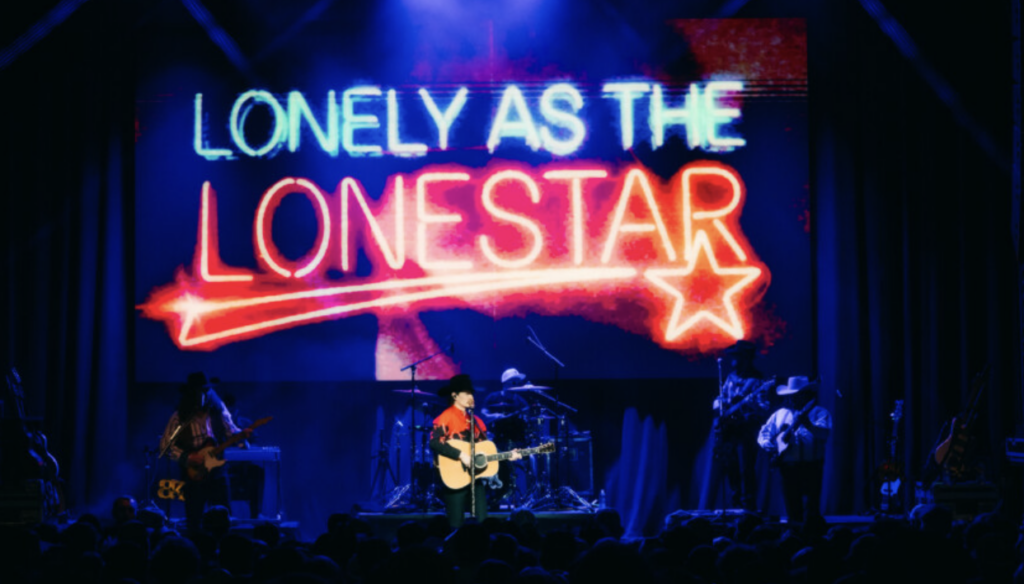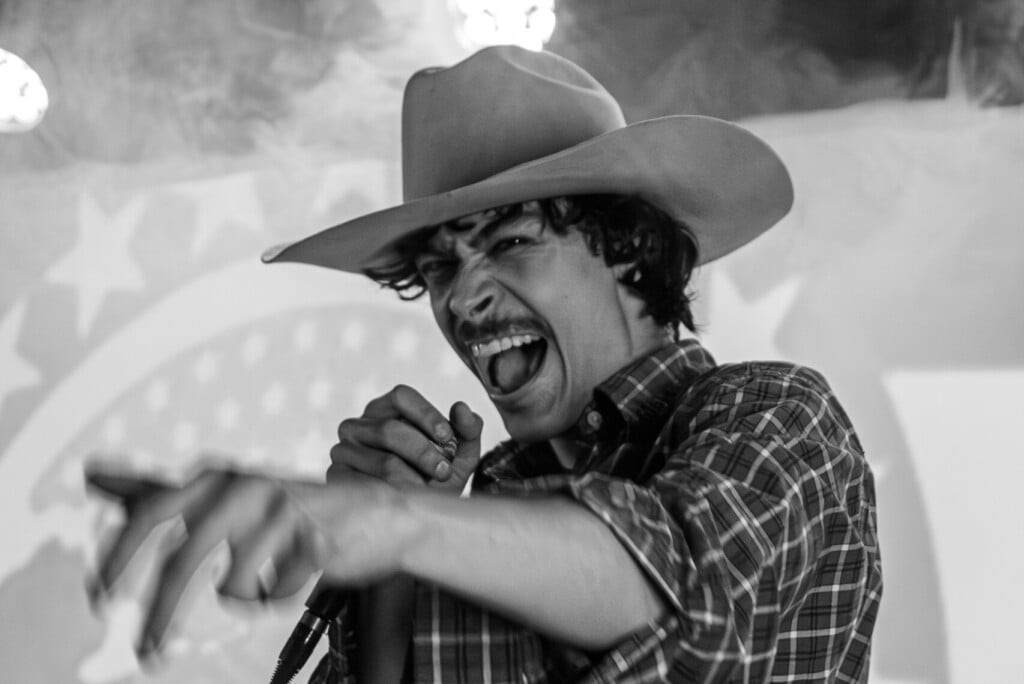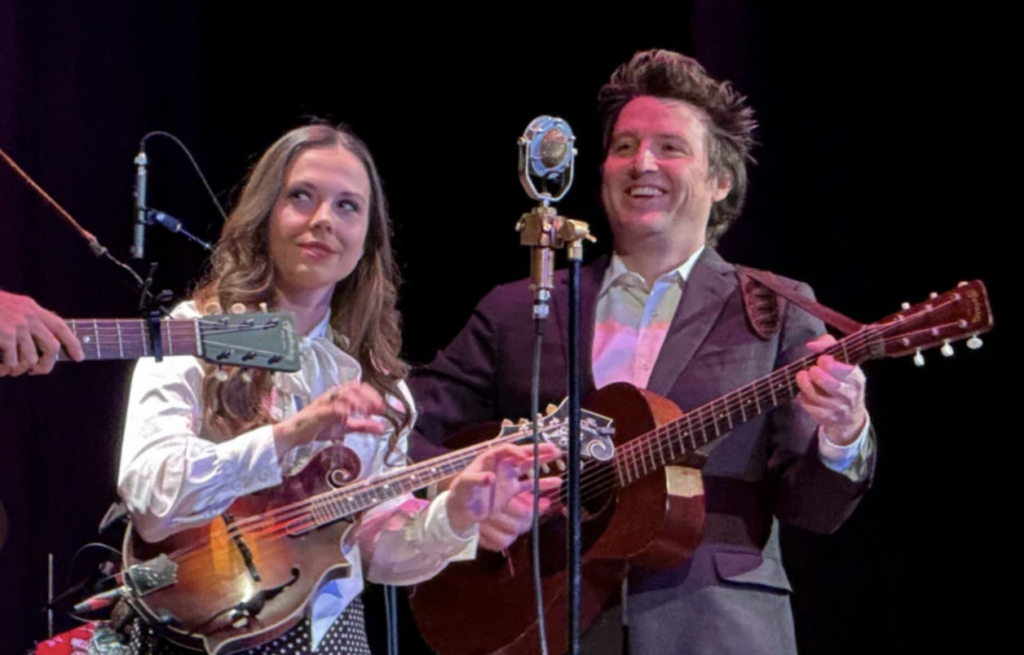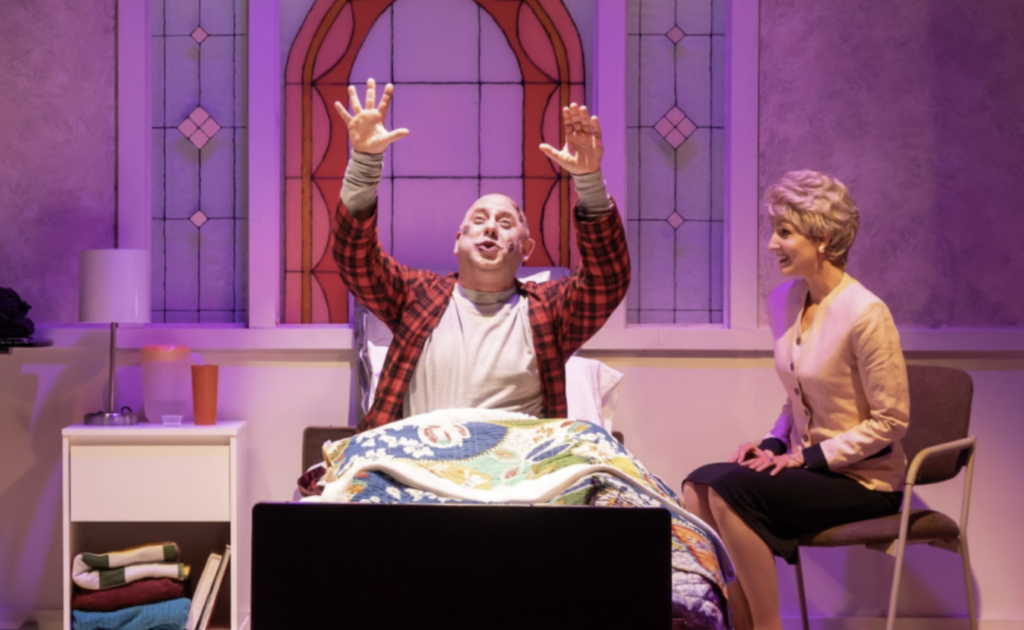Nightosphere reflects on the ‘serendipitous spark of connection’ in Katabasis
Kansas City’s Nightosphere had one hell of a 2023, releasing their debut album, Katabasis, in April, as well as opening shows for the likes of instrumental giants Explosions in the Sky and noise-rockers Chat Pile.
One year on from that album’s release, the band is looking to take their shoegaze-style post hardcore to the next level, as they embark on a two-week tour, opening for Chat Pile next month.
We took the opportunity to speak with the trio of Claire Hannah and Brittany Sawtelle (guitar/bass/vocals) and Dekota “Hop” Trogdon (drums) ahead of Katabasis‘ one year anniversary to talk just how far Nightosphere has come.
The Pitch: One of the things that struck me when I first saw you, was the way Brittany and Claire trade off on bass, guitar and lead vocals. When the band formed, was that idea there from the beginning?
Claire: Yeah, so part of why we started the band was because Brittany and I, both, really wanted to learn how to play bass. We’d been playing guitar prior and writing songs prior, so when we initially started it was kind of just like, “Well, I’ll play bass on your songs and you play bass on my songs and then we’re both forced to learn,” but now it’s a little more involved than that. The songwriting has become a little more like melody and it’s not as separated in that way, but that’s how it started.
When did the band start?
Brittany: End of 2021, right? We didn’t really start doing anything until 2022. I think our first show was in early March or late February of 2022. So it’s been about two years now.
How did all of you know each other prior to starting the band?
Claire: We’ve been friends for a long time. We’ve all been friends for a good while now and been around each other through music mostly.
Hop: Yeah, I met both of them through music, just being at shows.
What shows were you all hanging out at that you realized, “Oh, we should start a band”?
Brittany: I think it more formed out of like, Claire and I, both, really wanted to be in a band. We had been like, “You know, we hang out a lot. We’ve been friends for a long time.” We were just kind of talking about how we wanted to start a project and I wanted to play with Hop because Hop’s my friend too and Hop’s a great drummer. So it didn’t really come out of a show. I think it was more just out of our collective time.
Claire: Sometimes when projects form, it’s like, “Oh, this is what we’re going for. This is the genre. This is what the vision is.” And there was none of that. It was more just like, “We just want to get in a room together and and play songs,” which probably explains why a lot of our songs sound different from each other.
Hop: It was largely out of convenience because we were just kicking it and then we were like, “Well, what if we just kicked it and played music at the same time?”
That sounds so appropriate because the first release that you put out was that three way split with Abandoncy and Flooding and that seems that’s also friends getting together to do stuff with friends and just like taking it to the next level.
Claire: Yeah. That release was interesting too, because it was very much that, the three of us, separately, we all really liked each other’s music and we were all friends and it just happened, I think, because we’re writing songs at the same time and we’re coming up in the same scene.
The songs that we chose just magically were cohesive together, and also kind of like about the same things, which was really interesting because none of us knew prior to picking the songs what the songs were going to be for each band.
 You all had been a band for a bit before you released Katabasis last spring. What was the process of putting those songs together to make an album vs. the songs that you would just have in your set list?
You all had been a band for a bit before you released Katabasis last spring. What was the process of putting those songs together to make an album vs. the songs that you would just have in your set list?
Claire: It also was kind of interesting how that happened because, honestly, a lot of that album was kind of us just scraping together what we had because, again, Brittany and I had been writing songs prior to this project and it was all solo stuff. Obviously, they changed quite a bit when we started playing together, but it was kind of weird how they magically kind of went together, even though some of them were songs that we had written a while back—
Brittany: Years and years before.
Claire: —And then some of them were very new. Some of them were songs that we had written maybe just a few months before recording that album. I don’t know. The timing of everything was interesting because we intentionally didn’t want to record right away. We wanted some time to play the songs out, see how they developed, and see how we felt about them later, after playing them rather than immediately recording.
Brittany: Songs kind of take on their own life after you play them live for a while too. Like Claire was already saying, we wanted to give them a chance to live a little bit and play them live a bit and kind of fill them out and see what was comfortable for us to play live, as opposed to what just sounded good in my basement when we were playing and what can we actually do live because I think that’s at least important to me. Like, “What can I play, and can I play it exactly how it’s going to sound recorded?”
My bass parts, I was learning how to play as we were writing these new songs and coming up with stuff, too, so I’m glad we took some time on some of the songs because I got better. I was able to write more interesting parts after a while for some of the older songs just because that got better and I’m glad we took that time.
Part of the reason we’re talking is because Katabasis is getting ready to celebrate its first anniversary in a little bit. Looking back on it a year later, what are your thoughts on your first album?
Claire: Yeah, we’ve kind of been reflecting on this a little bit and I don’t know. I think, for me personally, I do feel like we’ve grown and we’re starting to solidify ourselves as performing musicians and recording musicians. I’m really excited to see what we can do on the next record. But I still feel like Katabasis was a really interesting and serendipitous spark of connection for us.
Because like I said, while we were super-intentional about how we recorded things and the ordering of the actual album, the songs that we picked just happened to go together. So I don’t know. I feel like that’s neither good nor bad. It’s just a recording of that certain place in that certain time for us.
Hop: Yeah, it’s hard to say, looking forward. Every record is just so different. After it’s done, it becomes like a monolith of where you were at the time and then you have to—you don’t have to—but you’re able to relive that constantly if you want, and I think that was a very transitional period for all of us, and none of us felt very solid in life.
When I think about that record now, I’m just really happy that it happened because it could have easily just not come to fruition, because I start a lot of things and don’t finish them.
When you have an album, it raises a band’s stature. It makes you seem more real. You opened a couple of shows with Chat Pile last year, and now you’re going on tour with them for an extended period of time. What do you all see the process as, going from basement shows, to matinee shows, to DIY club shows, to now you’re on a tour with a band who is known?
Claire: Yeah, that’s been, honestly, one of the craziest things. I think you’re right. Having an album out or just any kind of recorded work, really obviously helps you because then other people who aren’t in your immediate scene can get to know some of your work. The response to the album after we put it out was just way more awesome than we ever anticipated it to be and certainly, those Chat Pile shows were part of that.
That’s been kind of an insane part of this last year for us, as we’ve been getting out, playing more out-of-town shows, and we’ve been meeting people who influence us and bands that we really, really love and they’re like, “Oh yeah, we listened to your record and we like it.”
Brittany: We’re just like, “What?! Are you serious?”
Claire: I feel like we say this to each other a lot, but if that’s the only thing we ever do with this band—Get people that we really admire to listen to our music, that’s fine. It can just be done after that.
Hop: Yeah, I think your initial question was about what the progression feels like going from DIY basement shows to bigger venues, and I don’t even think it feels like a progression to me. It’s because we still do all of the DIY stuff.
Brittany: It’s just kind of, “Can we hear the vocals tonight or not?”
Hop: It’s all happening at the same time. I play in other bands and so do they, and so it’s probably always going to be happening at the same time, regardless of the success of one band or another.
Brittany: And I hope it does. I don’t ever want to stop playing basement shows.
Claire: There’s just such a different feeling to every different type of show and I wouldn’t necessarily want to like trade one for the other, because like Brit was saying, yes, sometimes it’s so awesome to have a fully equipped sound system and monitors, but then there’s also just so much to be said for the energy and the literal heat of a show where you’re in a limited space with people and you’re on the—
Brittany: —Same level with them, as opposed to being on a stage above the crowd, versus being right there on the same level with them. Very different. I’m sorry I cut you off, Claire.
Claire: Yeah, that was pretty much what I was gonna say and then also, being in a space and community with people who are directly a part of, and in your community, because sometimes when you play those bigger shows, people travel to those shows. They’re there to see whatever big artists we’re opening up for, so it’s not always our direct community, so it’s nice to have both of those things.
Nightosphere plays Howdy on Wednesday, April 24, with Oil Spill, Flooding, and Skuffed. Details on that show here. Their tour with Chat Pile kicks off at Lincoln Calling on Friday, May 3, and runs through Thursday, May 18, in Birmingham. Full dates for that tour available here.






